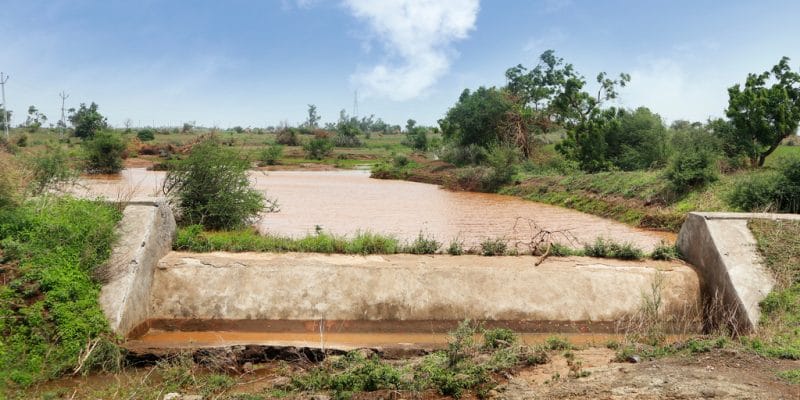The government of Burkina Faso has just launched the construction of a water reservoir near the town of Niangdo, in the Poa Division, Boulkiemdé province. The future dam will be able to hold 580,000 m3 of water for the development of 5 hectares of agricultural land.
The laying of the foundation stone for the Niangdo water reservoir took place on August 4th, 2021. It was during a ceremony presided over by the Burkinabe Minister of the Environment, Green Economy and Climate Change, Simeon Sawadogo. The project aims to improve the water supply of small farmers in Niangdo, in the Poa department, Boulkiemdé province in Burkina Faso.
Read Also –
The future Niangdo irrigation dam will have a capacity of 580,000 m3. The water stored there will be used to develop 5 hectares of agricultural land that can be extended to 40 hectares, as well as to restore 5,000 hectares of land that has been degraded due to drought, according to Minister Simeon Sawadogo. In total, 50,000 people will benefit from the project.
Funding from India and UNDP
The construction of the Niangdo irrigation dam will require an investment of more than 1.15 billion CFA francs (over 1.76 million euros). The funds are being provided by India (48.40%), the Burkinabe government (20%) and 16.50% from the United Nations Development Programme (UNDP). The entire project will last 18 months.
Read Also –
The Niangdo water project is part of the Programme for the Improvement of Sustainable Livelihoods in Rural Areas (Pamed) implemented by the Burkina Faso Ministry of the Environment, Green Economy and Climate Change. The programme, launched in 2020, aims to develop and enhance multipurpose agro ecological farms in Burkina Faso. Pamed “will help restore and sustainably manage the natural resources of small-scale farmers, increase the added value of local products and improve compliance with laws and regulations by community actors,” says UNDP. The Indian government is funding the programme with $10.6 million.
Inès Magoum







